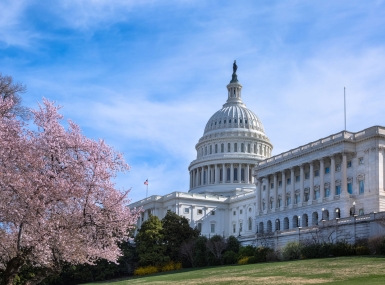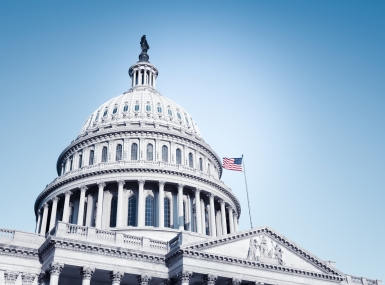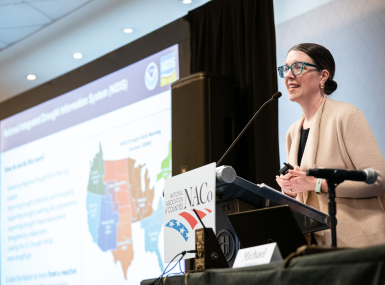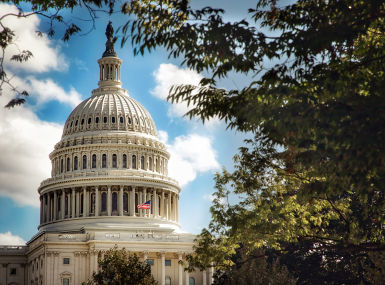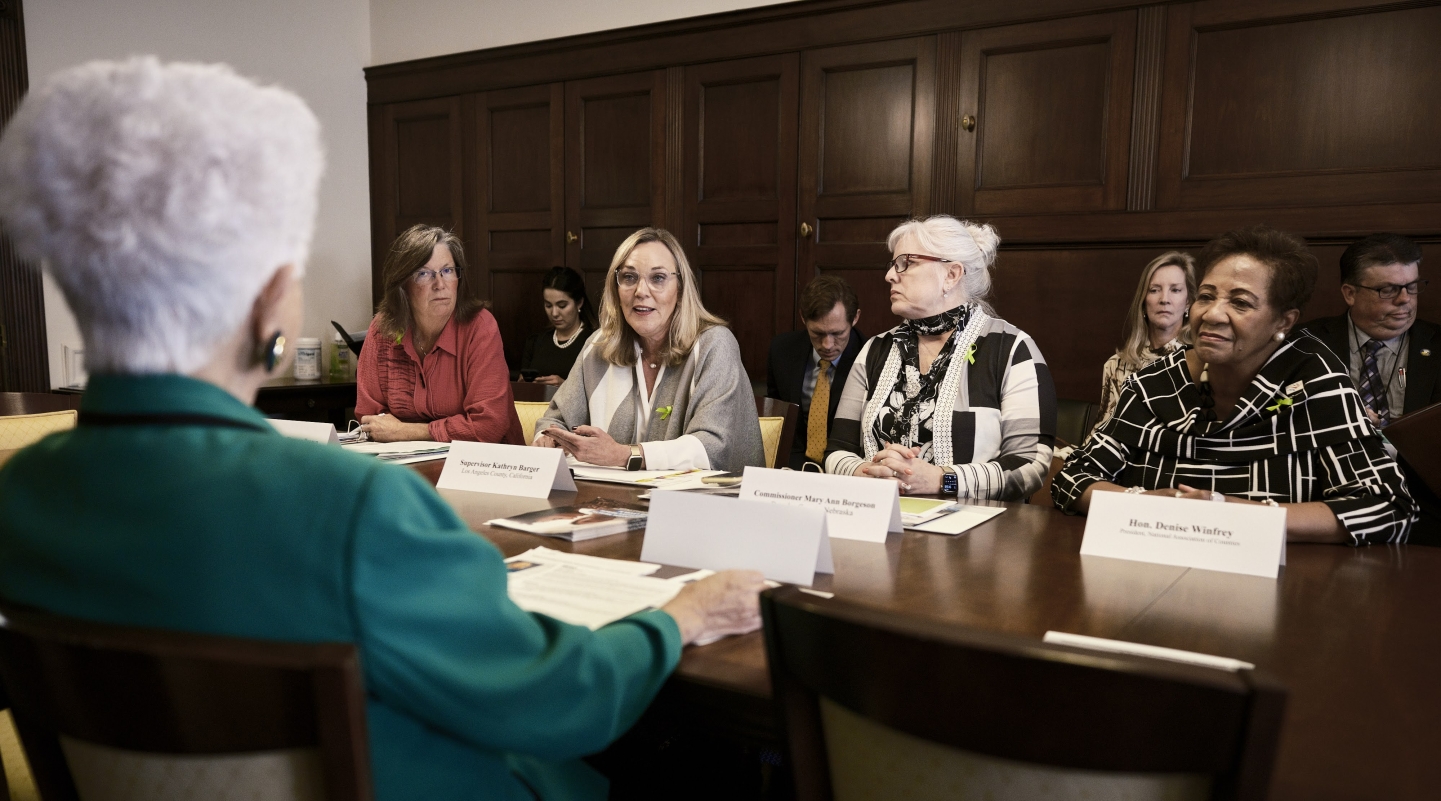County Countdown – March 25, 2025
Upcoming Events
Related News
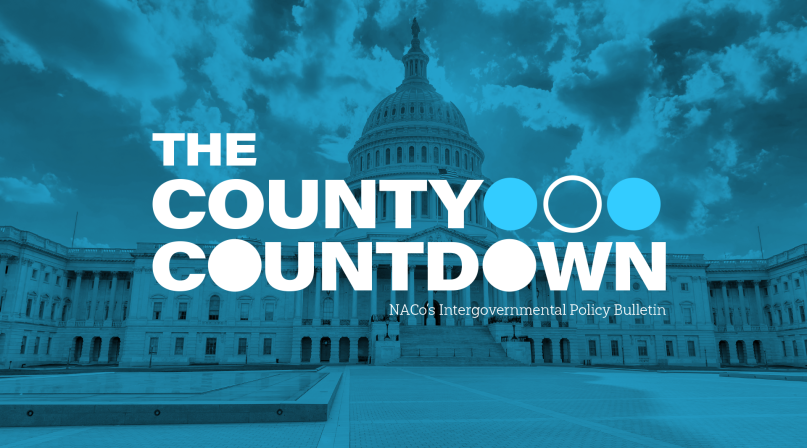
Every other week, NACo's County Countdown reviews top federal policy advocacy items with an eye towards counties and the intergovernmental partnership.
Congress averts a government shutdown
On March 14, the U.S. Senate passed the Full-Year Continuing Appropriations and Extensions Act of 2025 (H.R. 1968) to extend government funding through September 30, 2025, following the U.S. House’s passage on March 11.
- Funding levels: The measure maintains FY 2024 funding levels into FY 2025, setting discretionary spending at $1.6 trillion, with defense funding at $893 billion and non-defense funding at $708 billion, in line with the Fiscal Responsibility Act’s caps.
- Key programs: This continuing resolution also includes program extensions and funding, such as TANF, NFIP, FEMA’s Disaster Relief Fund, WIC and election security grants.
- County advocacy: Counties urge Congress to enact final FY 2026 appropriations by September 30, 2025, to avoid further disruptions and provide budgetary certainty for local governments.
Budget reconciliation negotiations
Negotiations between the U.S. House and Senate on a potential reconciliation package are ongoing, with significant proposals still on the table.
- Medicaid: Among the items under discussion are reforms to Medicaid that could impact local health and human services.
- Municipal bonds: Proposals to eliminate the tax-exempt status of municipal bonds – a critical tool counties rely on to finance infrastructure and essential services – are also being discussed.
- Take action: Contact your U.S. senators and representatives and advocate strongly to safeguard these vital programs and preserve the financial tools that support local communities and economies.
EPA announces a rollback of environmental regulations
The Environmental Protection Agency announced plans to roll back more than two dozen rules and policies. Chief among the rules included is Waters of the U.S., or WOTUS, a phrase used in the Clean Water Act to determine which waters are subject to federal jurisdiction.
- WOTUS: The definition of WOTUS directly impacts counties as owners and operators of water infrastructure. The Trump administration is seeking to implement a 2023 Supreme Court ruling that narrowed the scope of the Clean Water Act to limit jurisdiction over wetlands to those with a continuous surface connection to jurisdictional waters and not wetlands adjacent to a jurisdictional water.
- Other regulations: Other regulations under revision include those related to power plant emissions, vehicle emission standards and greenhouse gas findings.
- County impact: Counties could face increased challenges in maintaining clean air, safe drinking water and resilient ecosystems. The rollback of these federal standards may also shift greater responsibility and potential costs onto county governments as they work to fill regulatory gaps.
New White House executive order on natural disasters
On March 18, President Trump signed a new executive order that focuses on empowering state and local governments when it comes to disaster preparedness and infrastructure.
- What’s in the order: The order calls for the development of a National Resilience Strategy, the streamlining of federal policies on critical infrastructure, continuity of government and emergency response and the creation of a National Risk Register to better inform investments.
- Potential implications: For counties, this could mean increased authority—and responsibility—in managing things like wildfires, cyber threats and extreme weather events, while also requiring us to strengthen our capacity to plan, invest and coordinate disaster resilience efforts with reduced direct federal involvement.
- More from NACo: The NACo Intergovernmental Disaster Reform Task Force was launched in November 2024 to strengthen our nation's disaster mitigation, response and recovery capabilities.
NACo's first 100 days membership series
NACo’s ongoing membership series offers weekly updates on the Trump administration and Congress’ first 100 days, focusing on policies directly impacting counties.
- Each week: NACo’s government affairs team dives into policies and actions that directly impact counties, including federal funding, regulations and intergovernmental partnerships.
- This week: Join us this Thursday, March 27 at 3:00 p.m. EDT.
- Full schedule: View the full schedule and watch recordings from past weeks here.
